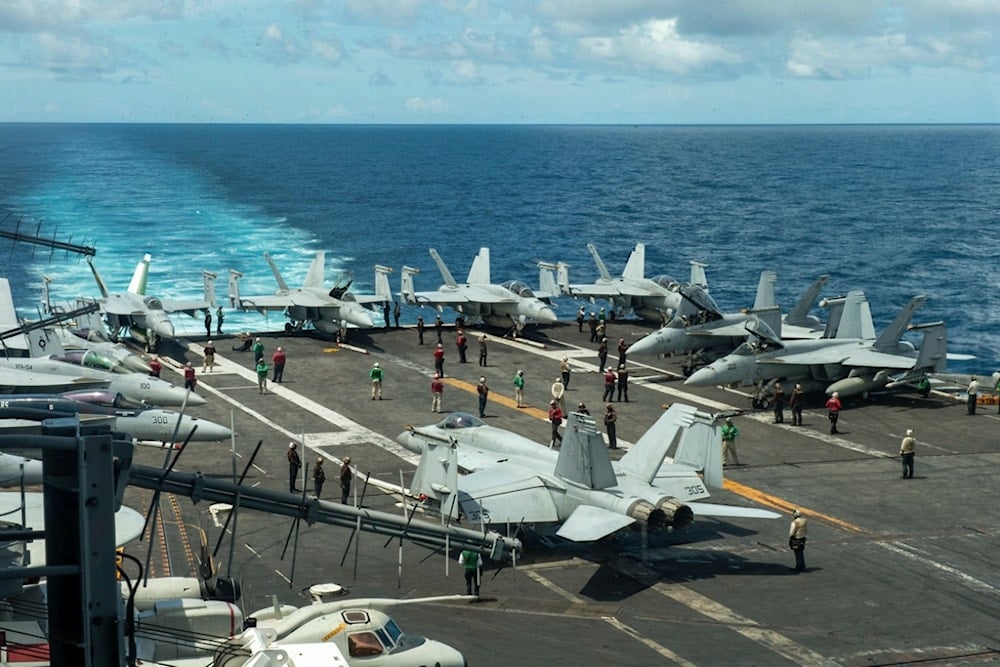US Navy can't stop Yemeni attacks with force alone: Commander
Vice Adm. George Wikoff admits the difficulty in identifying a critical vulnerability within the Yemeni Armed Forces that the US forces can consistently target.
-

In this photograph released by the US Navy, the flight deck of the Nimitz-class aircraft carrier USS Theodore Roosevelt is seen July 4, 2024, in the South China Sea. (Seaman Ryan Holloway/US Navy via AP)
The US Navy's mission to repel the operations of the Yemeni Armed Forces (YAF) will not suffice on its own to prevent the Yemeni attacks on merchant vessels, the admiral leading operations in the Middle East acknowledged this week, the Business Insider news website reported.
Shortly after the start of the Israeli war on the Gaza Strip, the YAF imposed an entry ban into the Israeli-occupied ports of Palestine and has been targeting ships that violate the decision.
They vowed that these operations will not cease until the aggression is halted and the siege on the Palestinian people in Gaza is lifted.
Vice Adm. George Wikoff, commander of US Naval Forces Central Command, emphasized that addressing the Yemeni threat requires more than just military might. Instead, he suggested that Washington and its allies must explore alternative methods to exert pressure on the YAF.
"The solution is not going to come at the end of a weapon system," Wikoff suggested Wednesday during an event hosted by the Center for Strategic and International Studies.
"It's going to be the international community," he added.
US officials have claimed that for over eight months, their forces have been actively defending key shipping lanes in the Red Sea and Gulf of Aden from persistent Yemeni missile and drone attacks, but to no avail, as the Yemeni Armed Forces have continued their operations tirelessly.
On July 19, a YAF drone even struck a building in Tel Aviv, killing one Israeli settler and injuring several others.
"We have certainly degraded their capability. There's no doubt about that," Wikoff mentioned. "However, have we stopped them? No."
He highlighted the difficulty in identifying a critical vulnerability within the YAF that the US forces can consistently target, making it challenging to implement a traditional deterrence strategy in this context.
Currently, he explained, the US Navy's goal is to maintain the status quo, allowing other branches of government and the international community to apply pressure on the Yemenis to cease their operations.
"The more players on the field that can get involved in the diplomatic and that piece of this, the better off I think we'll be in terms of the odds of success," Wikoff indicated.
His assessment aligns with previous statements by US officials, acknowledging that military actions alone have not been sufficient to halt the Yemeni attacks.
Wikoff's remarks also come amid warnings from experts and officials that the situation is unlikely to conclude soon, raising concerns about the long-term sustainability of the US naval presence in the region and the escalating financial costs of the operations.
Read more: What does 'Israel' think it's doing against Yemen?

 3 Min Read
3 Min Read








